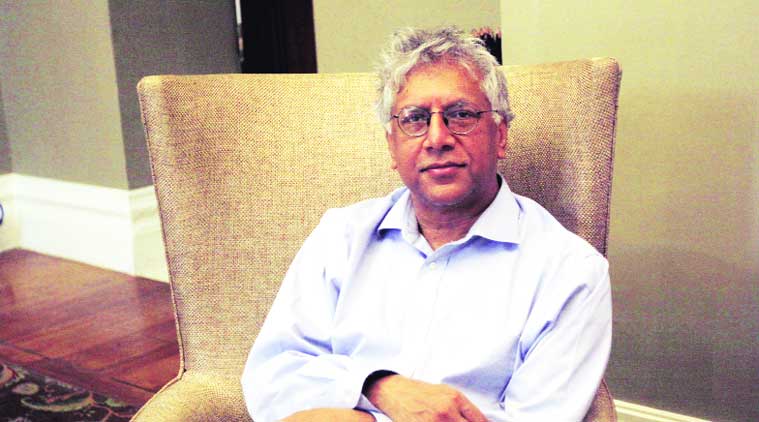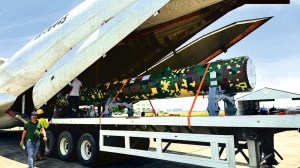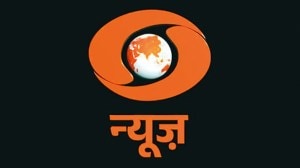- India
- International
Vijay Seshadri: What’s at the heart of writing poetry is making metaphors. That can’t be taught
In the city for Tata Literature Live!, Pulitzer prize-winning poet Vijay Seshadri speaks about his writing process, the immigrant experience and his abiding interest in Indian mythology
 Vijay Seshadri (Express photo by Pradip Das)
Vijay Seshadri (Express photo by Pradip Das)
How has life changed for you after winning the Pulitzer earlier this year for your collection of poems, 3 Sections?
I’m travelling a lot and people treat me very well, which is nice — not that they treated me badly before. I’ve been on TV, met famous movie stars, sat down and ate with them. Also, many more people come to my readings than otherwise would. I don’t know what the internal effects are. I’m probably too old to be changed by anything.
You describe your growing up experiences in Columbus, Ohio, as strange. Was yours a typical immigrant experience?
When I say strange, I say that Indians are also strange in India. The civilisation is super saturated and it pushes each individual outside of it in some way because it’s so complex, rich and strange. But certainly, we were strange. There were no other Indians in our neighbourhood. There was no one who cooked with the kind of spices that my mother did so the smells that emanated from our kitchen were strange.
Unusual experiences tend to jumpstart the consciousness — an awareness develops very early. And those people often tend to be artistes. Do you then feel that poets are born, or can poetry be taught?
I find it harder to teach poetry than prose. I feel there are many ways through which you can convey the writing of prose where a reasonably talented person can be made into a good prose writer. I think it’s a little more uncanny with poetry, because what’s at the heart of writing poetry is making metaphors and I don’t quite know if that can be taught.
Your poem, The Long Meadow, is inspired by the Mahabharata. Have you always had an interest in Indian mythology?
There is nothing in the world like the treasure trove of Indian stories. It’s just an enormously fecund narrative culture. They go so deep because they’re illustrations of profound ideas about reality. The Mahabharata is particularly interesting because after everything happens, Yudhisthira is about to enter heaven and he is being confronted by this incredibly perplexing dilemma and you feel the story should be over but then the notion is that the story never ends. I found this idea more intriguing than any verse in the Bhagavad Gita. I take away more from the imaginativeness and wildness of the narration than the actual content.
The Disappearances, published after the 9/11 attacks, found resonance with many Americans. Since you wrote it months before the incident, how do you think people made this connect?
I experienced my first planetarium, and my first popsicle when I left Bombay for London. These are mentioned in the poem. The Disappearances is about childhood memories centering around one traumatic memory, which is the Kennedy assassination. And the only thing comparable in the American history of my period to 9/11 was the Kennedy assassination. I think people made this connection, though it was a strange intersection. Being a poet is being attentive to those connections.

You consider yourself a poet who does ‘voices’. How does that come about?
I’m fascinated by the process of writing wherein the language comes off the page as if it were spoken. Constructing a poem involves both creating a person who is speaking the poem, and creating the poem itself. Instinctively, whether you understand or not, you are coming in touch with a human being.
You say that you often ‘write in your head’ before putting it on paper.
I let an idea percolate in my mind until it forms a concrete image that I feel can be developed into other images. And I retain a lot of those ideas, which makes me a little absent-minded when it comes to actually doing things in the world. But that works for me.
shikha.kumar@expressindia.com
Apr 20: Latest News
- 01
- 02
- 03
- 04
- 05






































